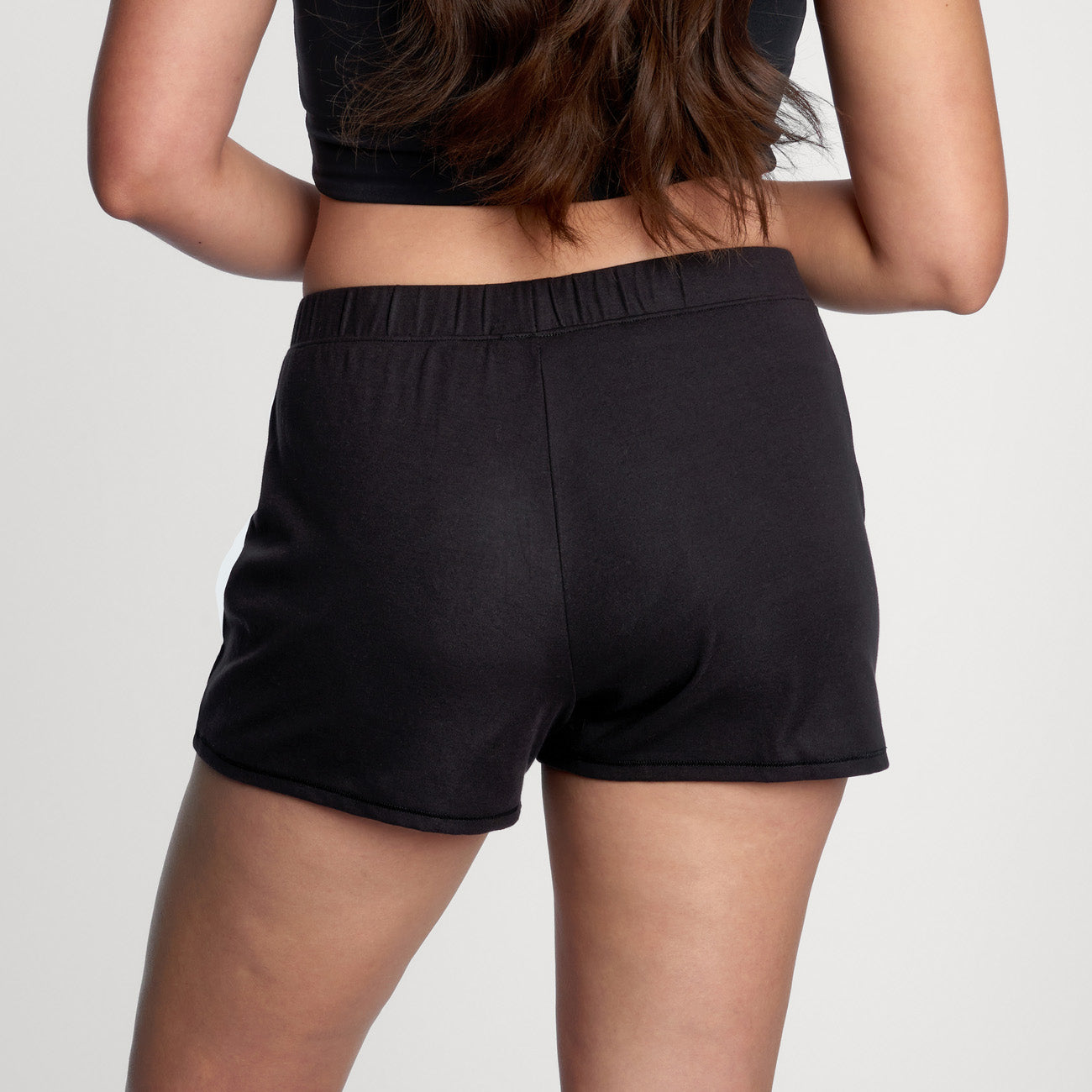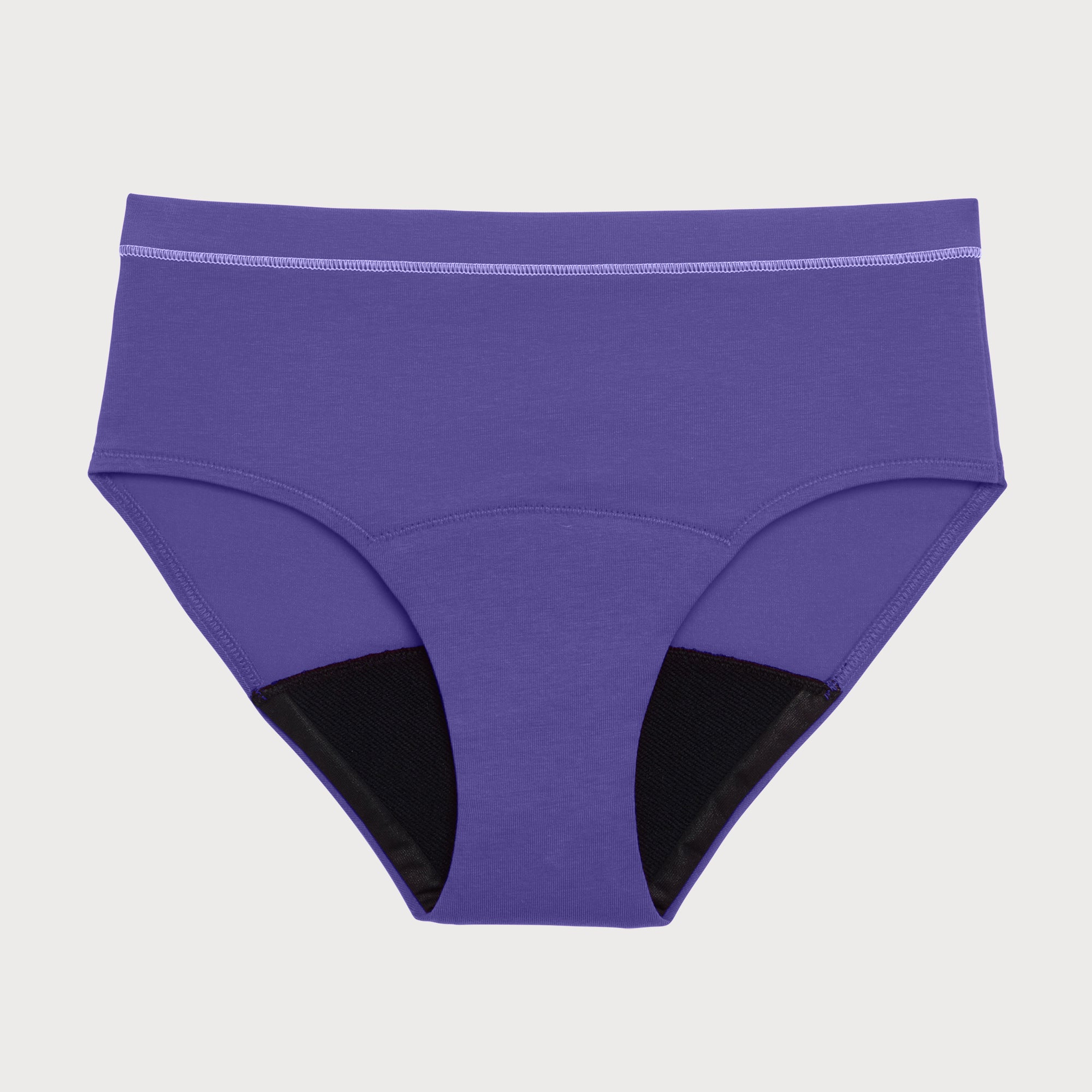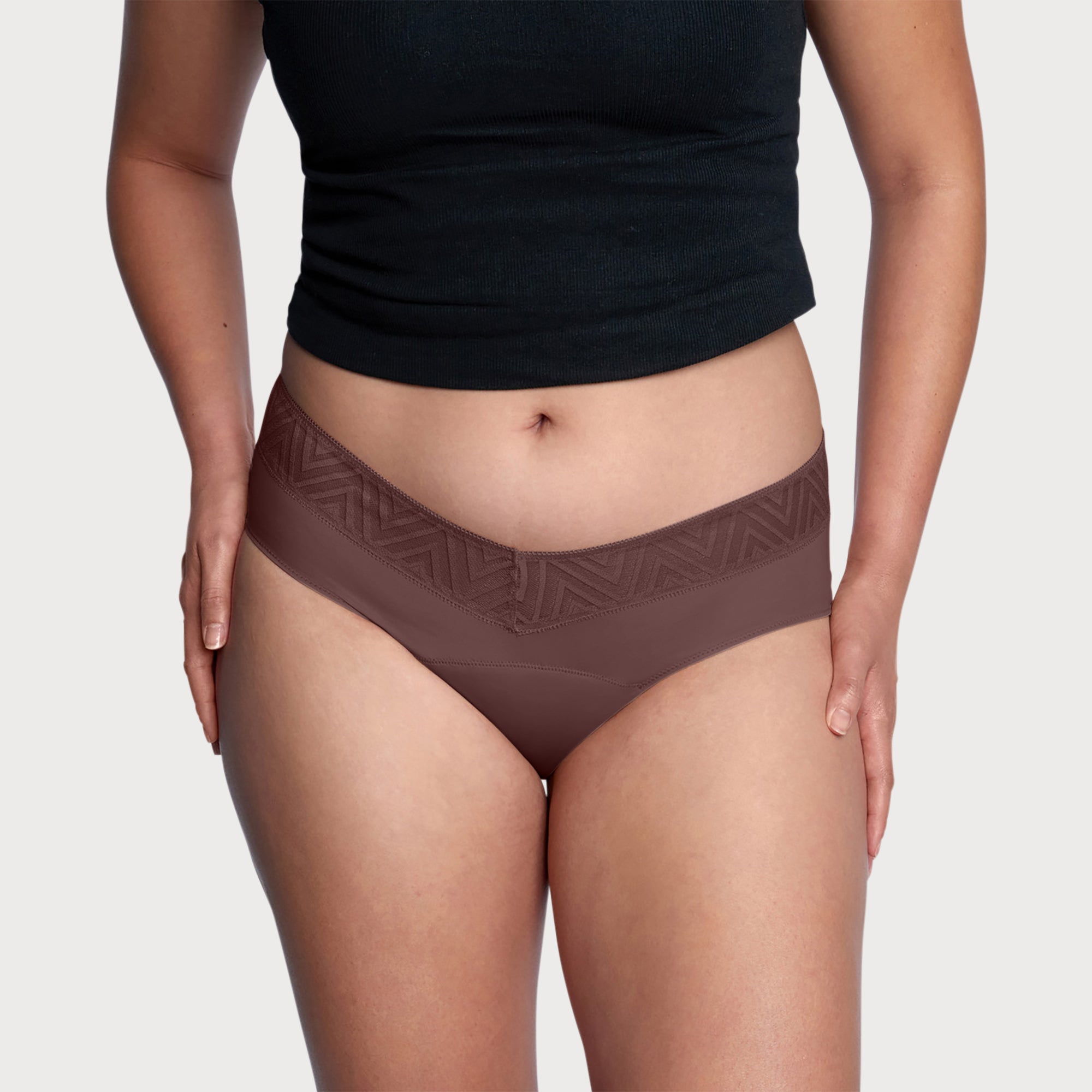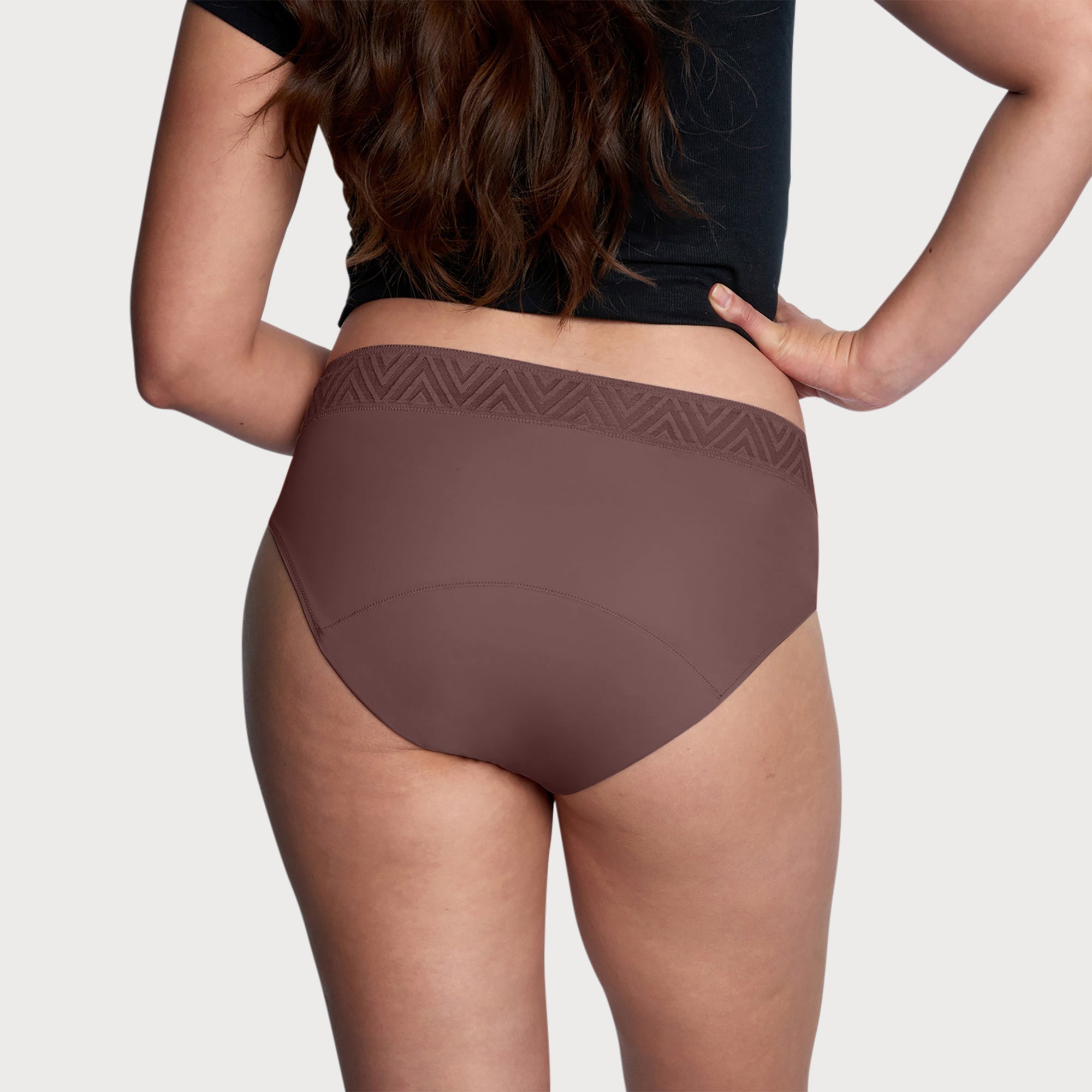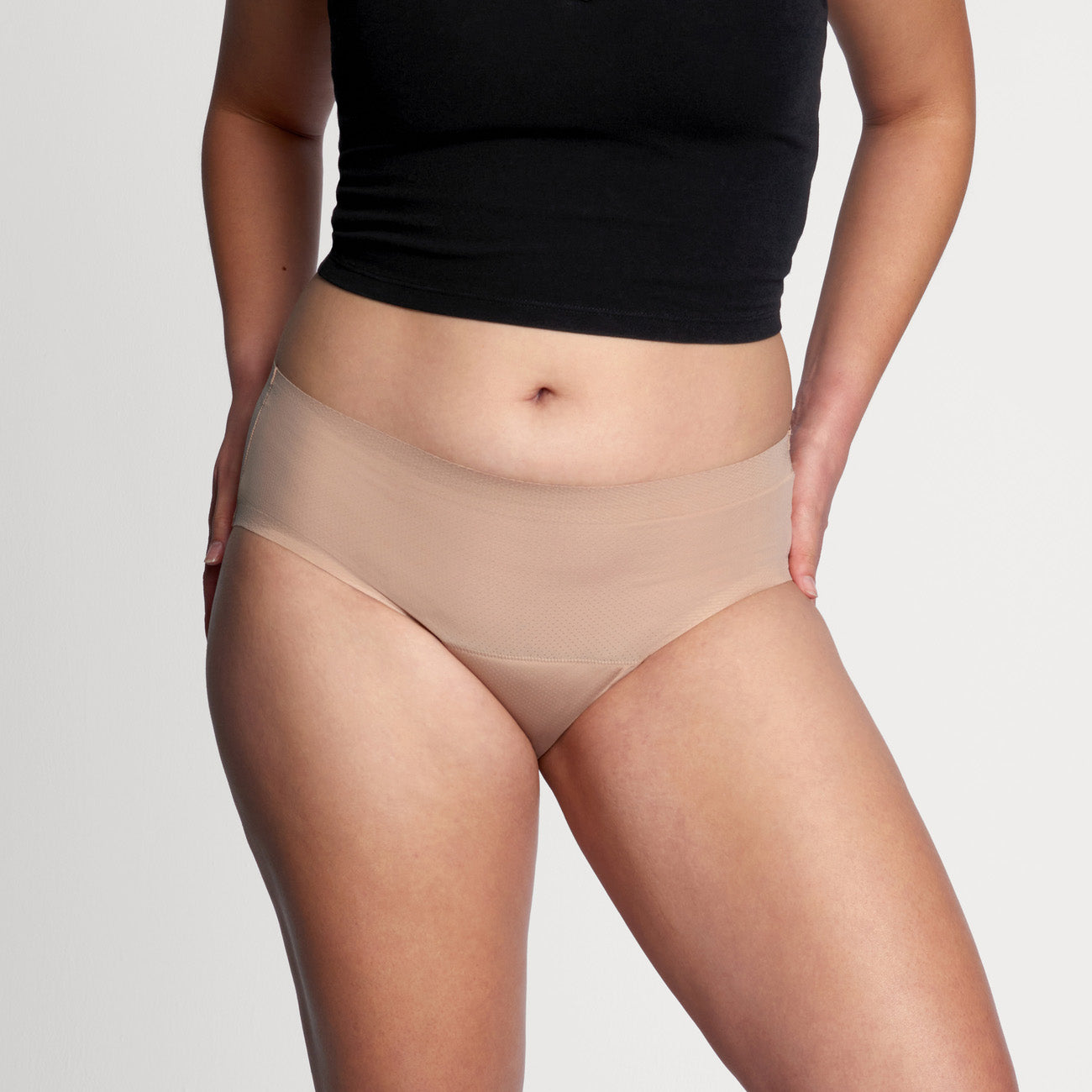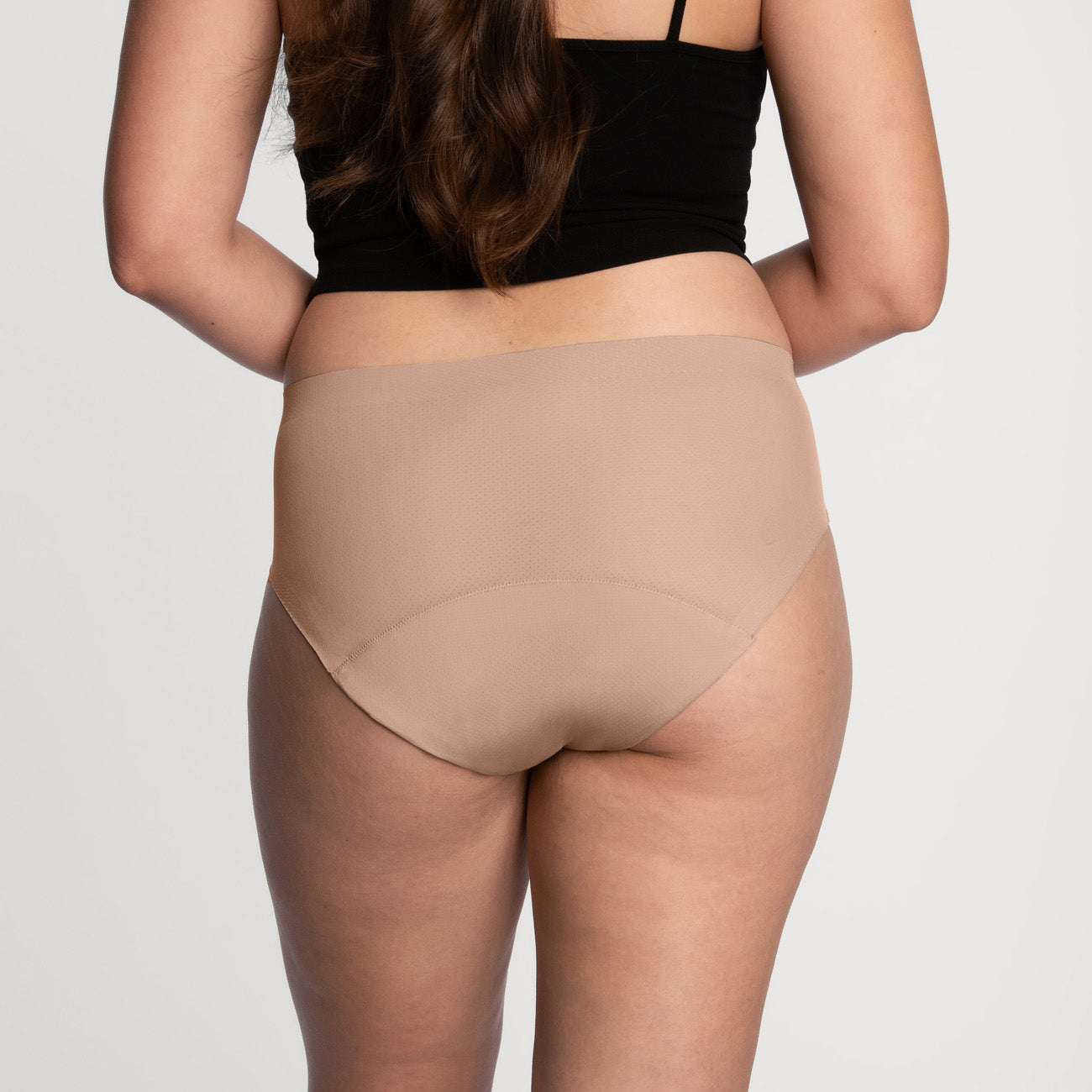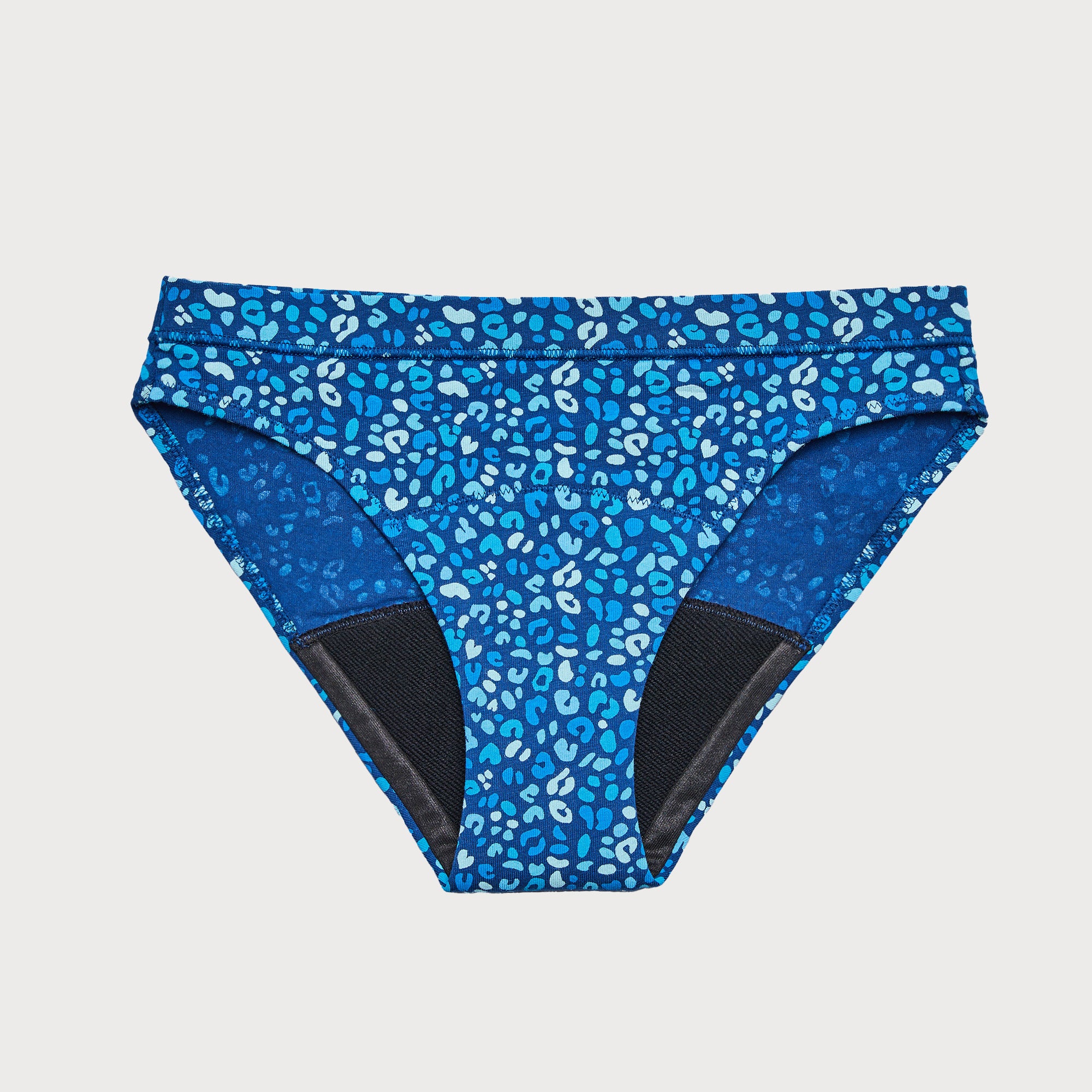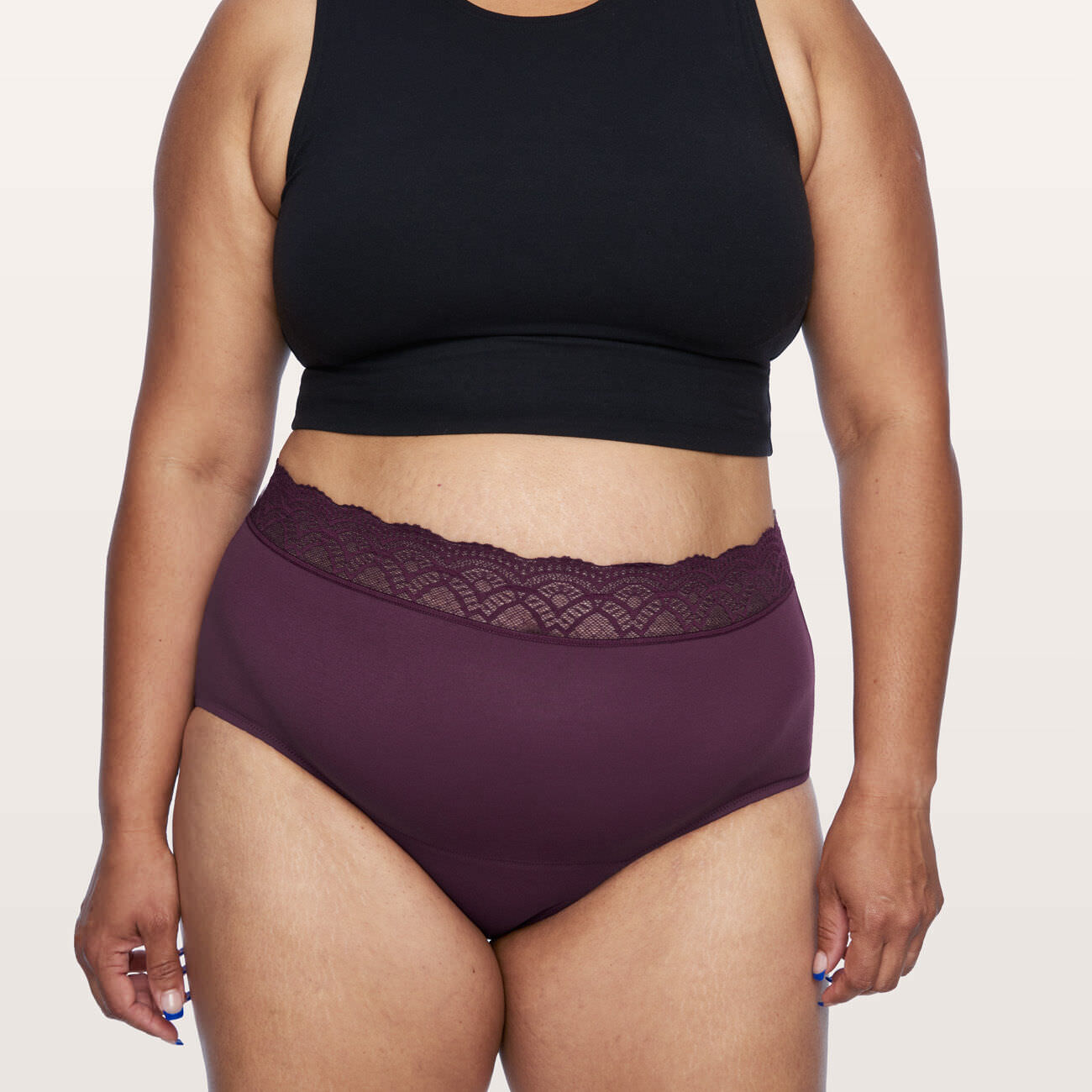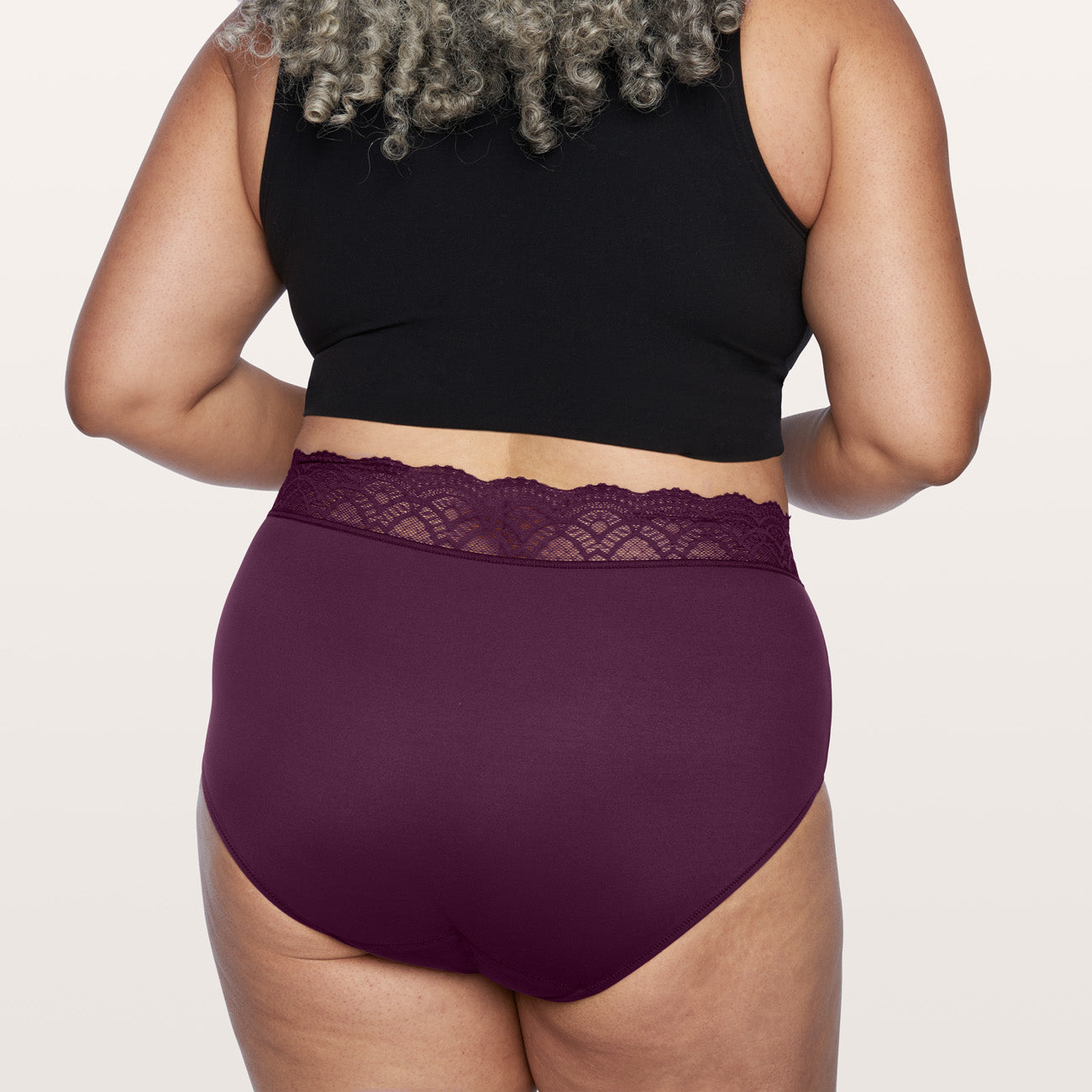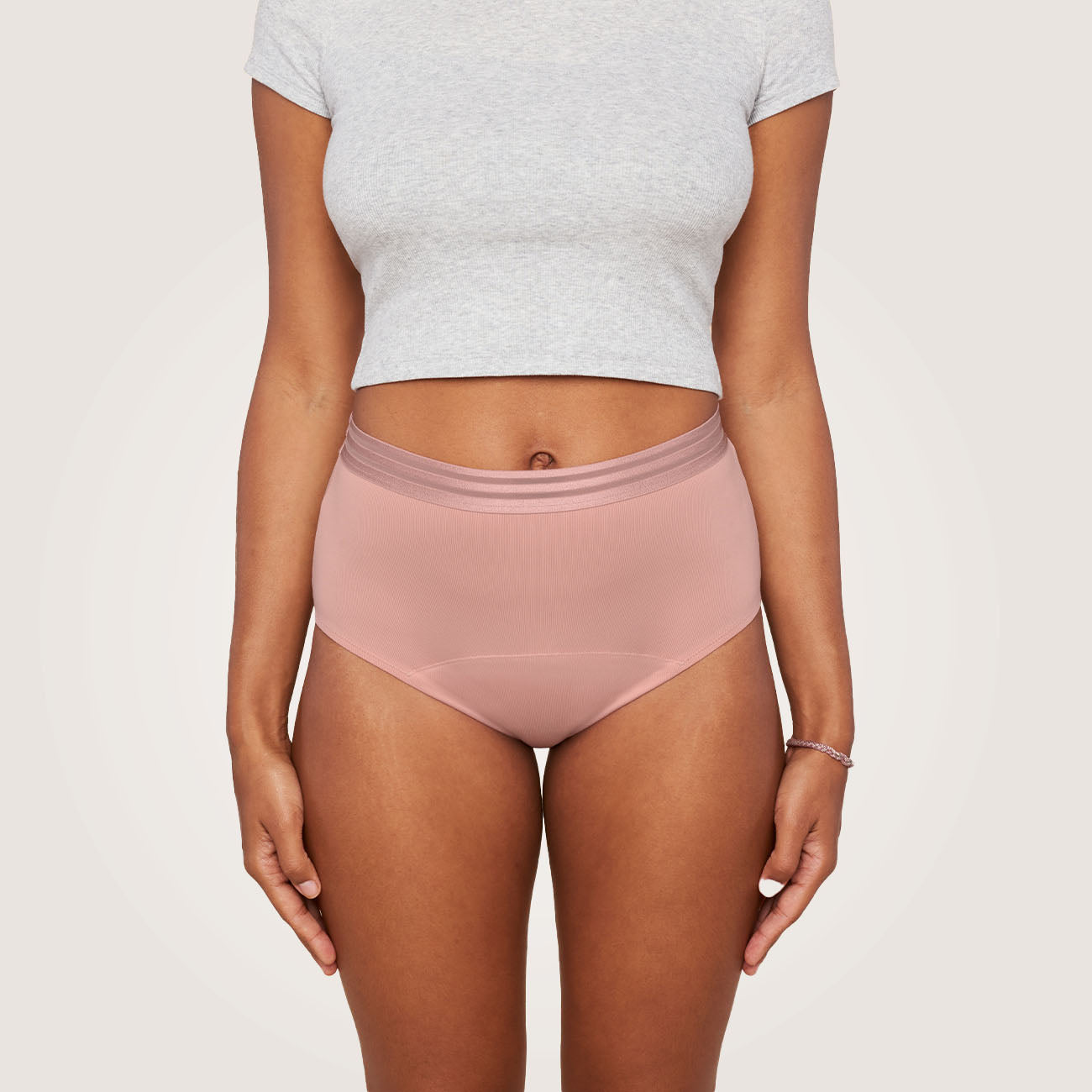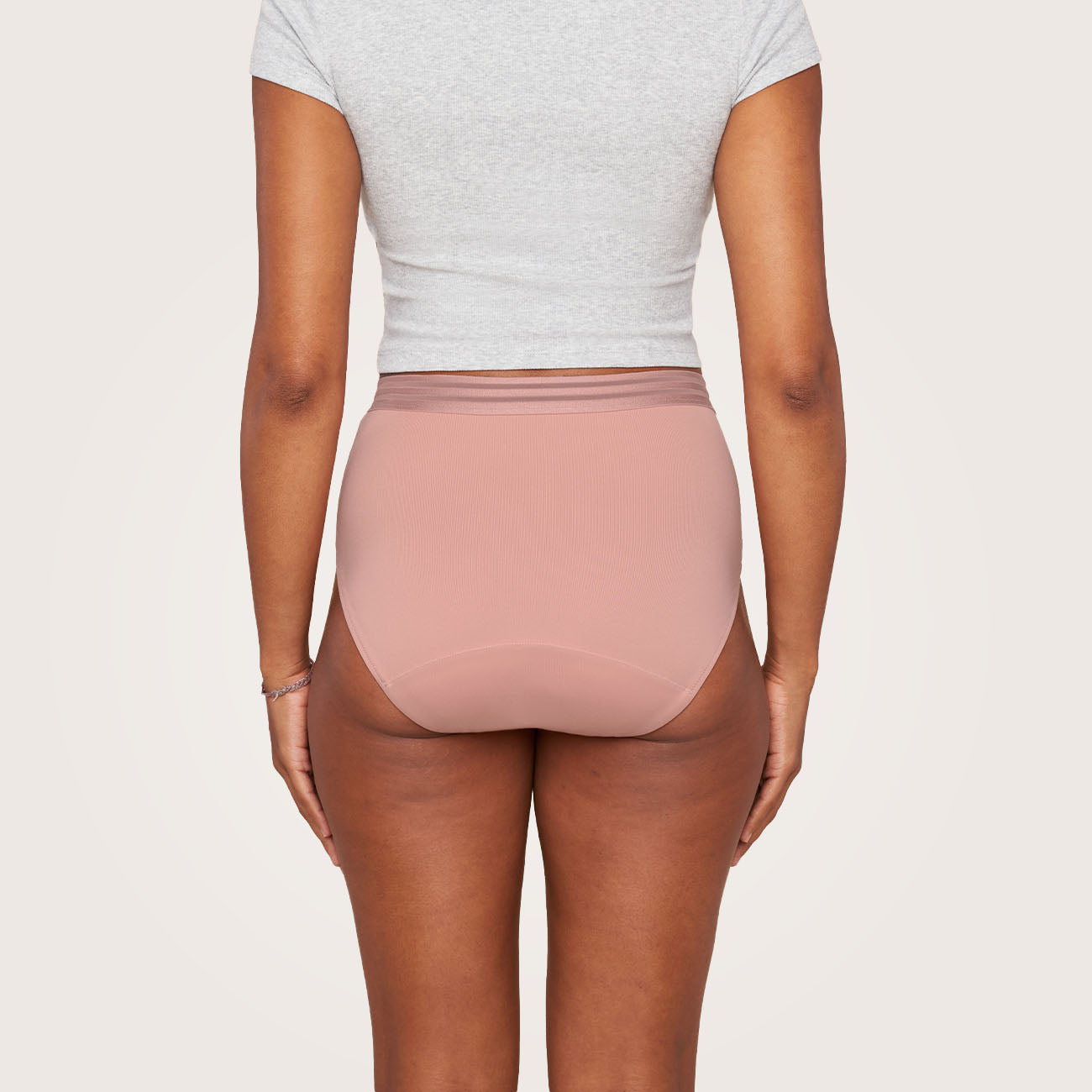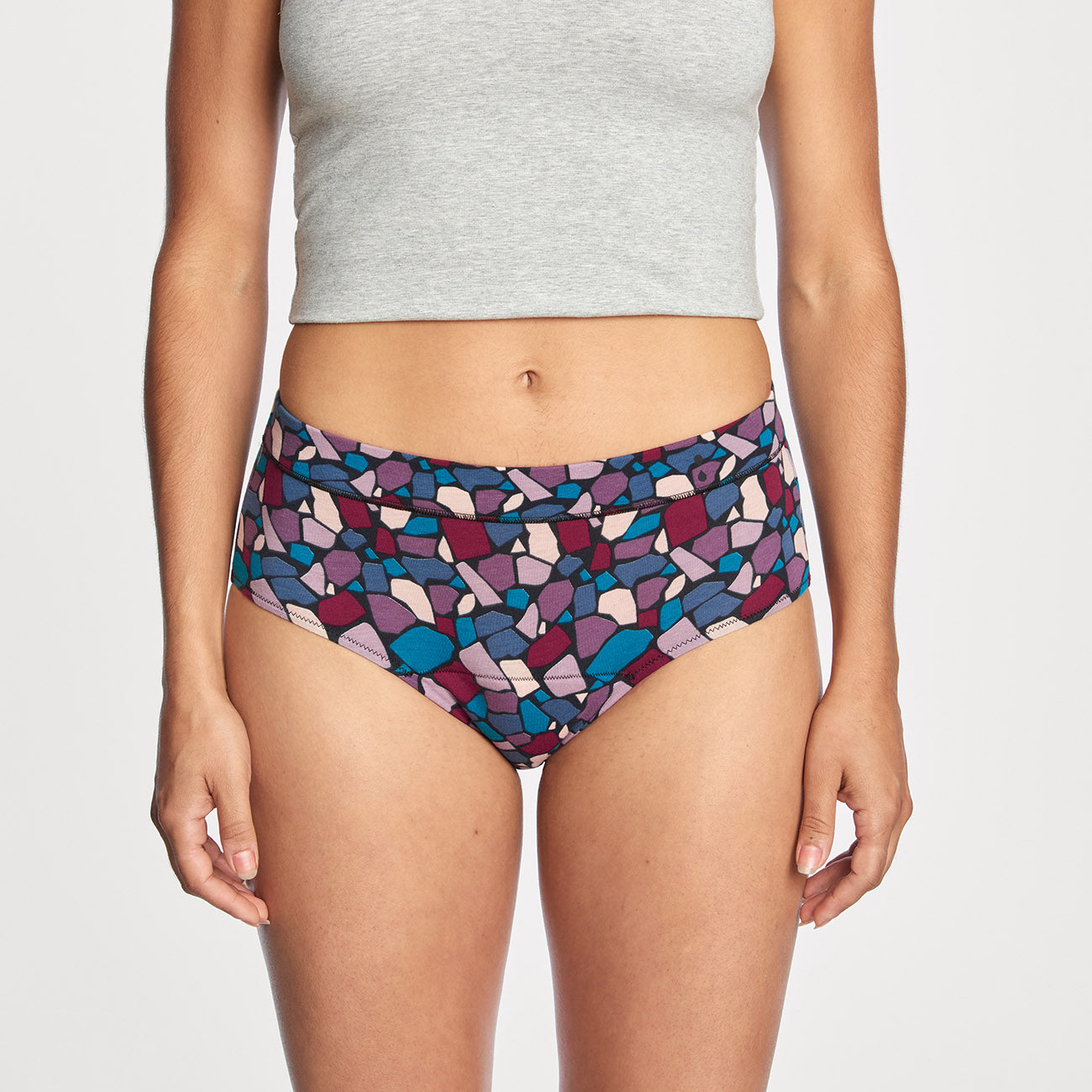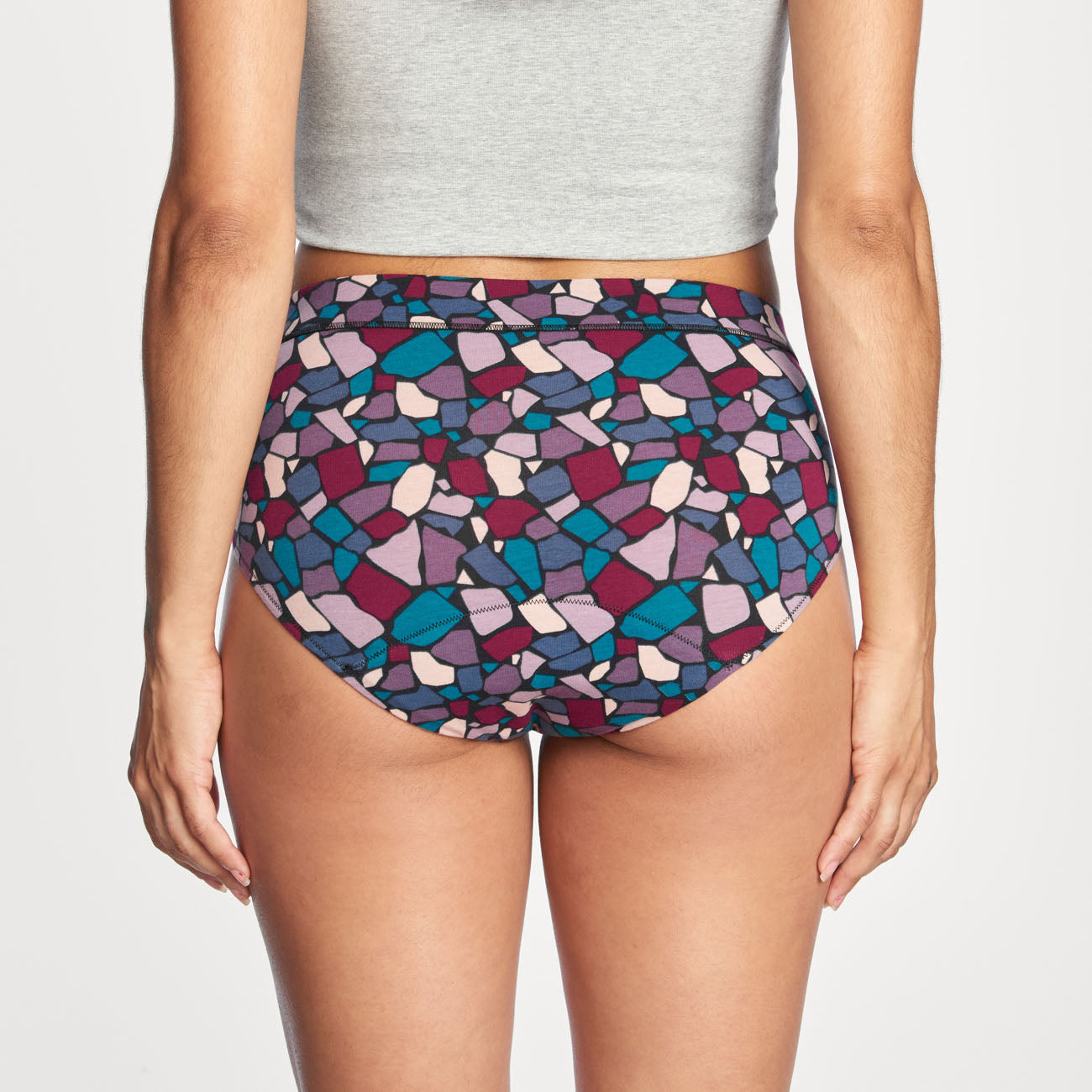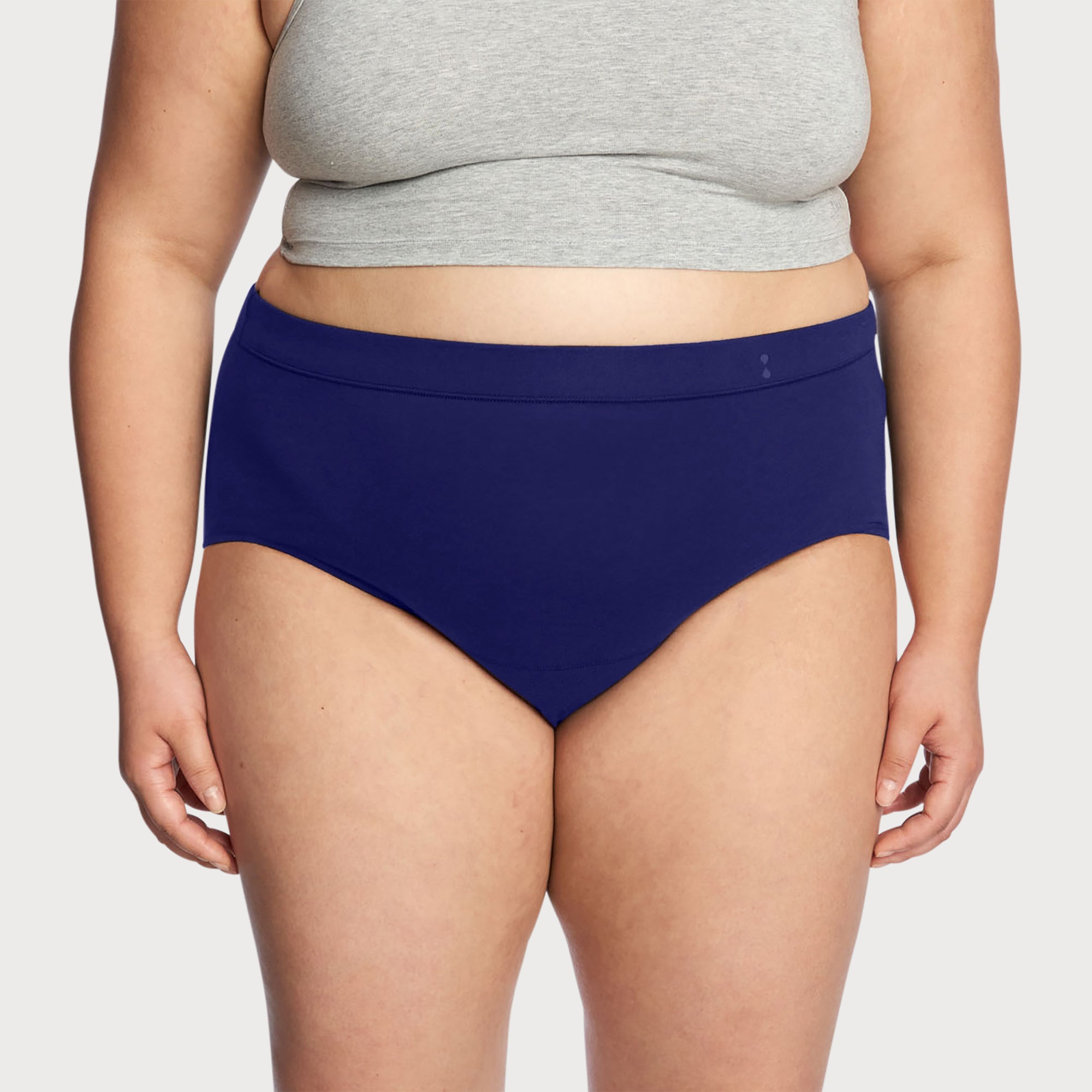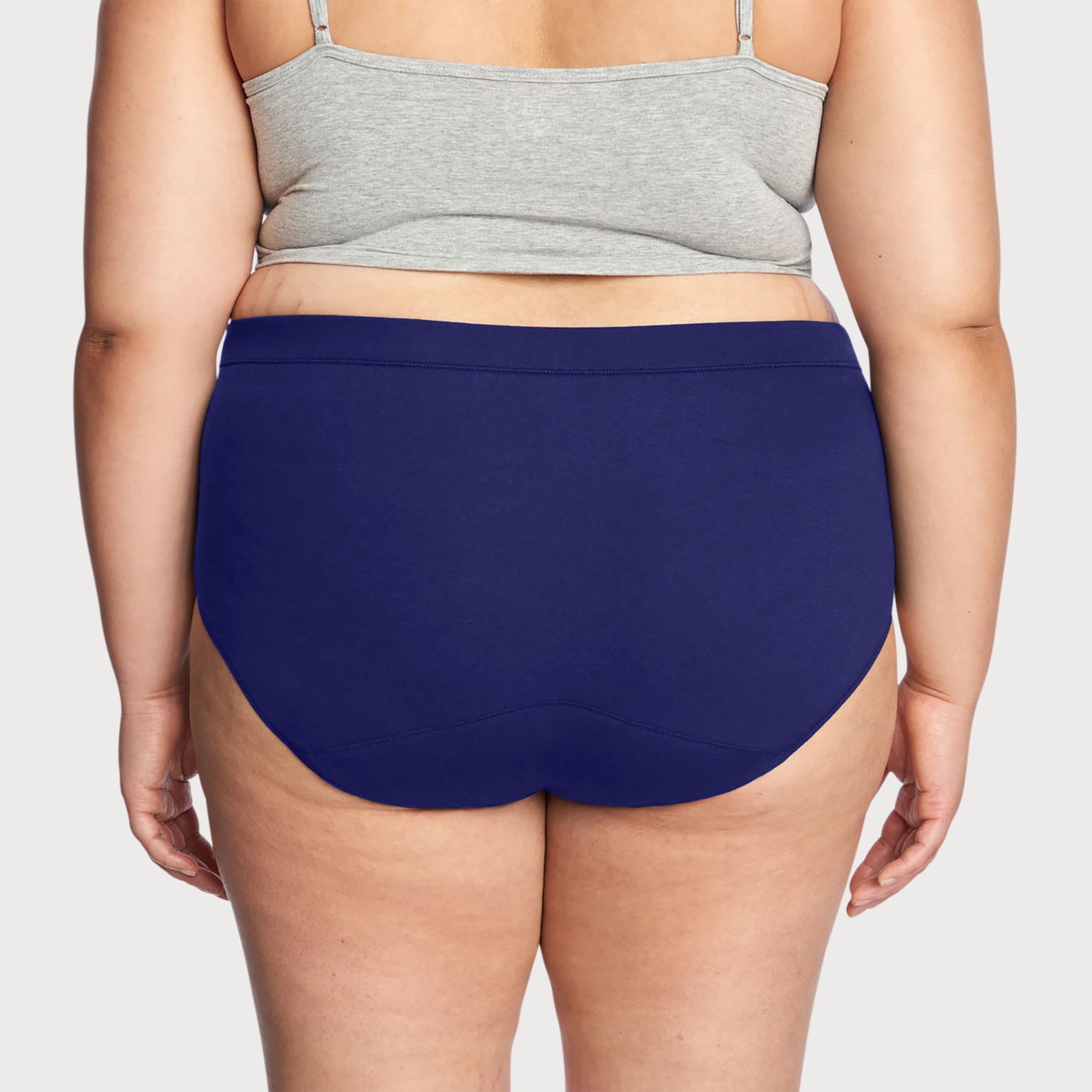How Long Does Period Bloating Last?
- Share this article Copy to clipboard

Period bloating is a reality for many—more than half of people who menstruate, in fact. If you’re feeling like a balloon that could pop at any moment, you’re likely wondering, “How long can period bloating last?”
While typical durations can vary, there are certainly factors that can influence when and how strongly you’ll experience bloating on your period: hormone levels, diet, and hydration are just a few. In this guide, we’re diving into the how, why, and when of period bloating to help you find the answers and support you need.
typical duration of period bloating
In a recent study, 62% of participants experienced bloating before menstruation began and 51% felt bloated after their period started. These are two distinct phases of your reproductive process, so let’s break down what that timing looks like.
the luteal phase
The menstrual cycle is made up of a few specific phases:
The follicular phase – During the first few days of the follicular phase, your uterus sheds the lining it developed during your last cycle—menstruation. While you’re menstruating, your body is preparing to release a mature egg into the fallopian tube.
Ovulation – During ovulation, your ovary releases a mature egg into the fallopian tube.
The luteal phase – After ovulation, a hormone called progesterone spikes—this is a key compound that signals the uterine lining to thicken. If the egg reaches your uterus unfertilized, progesterone levels quickly drop as your uterus prepares to shed its lining.
The lengths of these phases can vary between people and even change over time. But let’s zoom in on the luteal phase: the phase when many people begin experiencing period-related bloating.
Progesterone is a key player in this phase: it signals uterine lining thickening. However, progesterone also plays a role in digestive function. This is one of many culprits behind menstrual bloating:
Progesterone peaks during the luteal phase, which can trigger intestinal distress (including bloating).
If your egg reaches your uterus unfertilized, progesterone levels quickly take a nosedive; this rapid change can lead to even more digestional changes.
When progesterone levels drop, the uterine lining begins to shed—but many patients still experience bloating during this phase.
m
So, how long does bloating last on period? Some people feel bloating before their period and it stops once their period begins, however, this isn’t the case for everyone. In many cases, compounds called prostaglandins play a role in their continued intestinal discomfort. But what are prostaglandins exactly?
they’re hormone-like – While prostaglandins are actually lipids (fats), they behave like hormones: they send signals that tell the body to perform certain functions.
they’re key to contractions – Prostaglandins trigger uterine contractions—both during labor and during menstruation. During menstruation, these contractions help shed the uterine lining.
they wear many hats – However, the uterus isn’t the only place where prostaglandins trigger contractions: they’re also partly responsible for contraction and smoothing your stomach muscles. If you’re no stranger to the “period poops” phenomenon, this is why.
average duration
When does period bloating go away? It’s hard to calculate an average for a few reasons:
phases are often inconsistent – If you have an irregular period, the length of each phase in the menstrual cycle fluctuates month to month. Your luteal phase could last 10 days during one cycle and last 14 days during the next—and, theoretically, you might feel bloated throughout the entire phase.
every person is different – Many people experience bloating only during the luteal phase; more than half still feel bloated once they start menstruating. Your body’s specific reactions to hormones and prostaglandins impact both your symptoms and their duration. Since every body is unique, even well-documented trends among menstruators may not describe your experience.
there are numerous factors at play – Your period bloating could be completely unrelated to both progesterone and prostaglandin activity—these are only two possible culprits of period bloat.
The best way to predict how long your bloating will last is to record your own experience. Think like a scientist: gather and document data over time (i.e., across multiple menstrual cycles) to identify patterns and draw conclusions that uniquely describe your own experience.
With a clearer picture of your own body’s responses to menstruation, you can more easily predict how you’ll feel during future periods.
factors affecting duration
In the previous section, we mentioned that luteal progesterone and menstrual prostaglandins weren’t the only culprits behind period bloating. Let’s break down a few other potential causes of period bloating.
hormone levels
Hormones are the backbone of the reproductive cycle: they signal the physical changes that make reproduction and menstruation possible. But one of the many discrepancies between people who menstruate is hormone levels—your body’s concentrations of key hormones like progesterone.
Speaking of progesterone, let’s take a look at the widely accepted “normal” progesterone levels at different ages and stages:
Prepubescent people – 0.1 to 0.3 nanograms per milliliter of blood (ng/mL)
Follicular phase – 0.1 to 0.7 ng/mL
Luteal phase – 2 to 25 ng/mL
Consider how wide that last range is: whether your blood contains 2 or 25 ng/mL during the luteal phase, your progesterone level is considered normal.
Since progesterone levels (even in the normal range) can vary so widely between people and progesterone is connected to digestive activity, it’s no wonder that menstrual bloating (and other side effects) can look so different from person to person.
diet
Though bloating is a common menstrual symptom, it’s a digestive issue—so, your diet could be playing a key role in your symptoms. Let’s zoom in on one key nutrient that could help with period bloating: fiber.
fiber is key to digestion – Fiber helps your digestive system efficiently and effectively eliminate waste. Your fiber intake is directly linked to your digestive health.
almost no one gets enough – According to researchers, a meager 5% of the American population reaches their daily recommended value of fiber—which means you’re highly likely to have a fiber deficiency.
While it’s difficult to say whether or not fiber deficiency is the root cause of your menstrual bloating, this is just one example of a critical nutrient that could be impacting your overall digestive health. If you’re struggling to keep period bloat at bay, consider paying closer attention to your diet—eating a wide range of nutritious foods could be the solution.
hydration
If menstrual bloating is a mainstay symptom for you, consider your water intake on your quest for relief:
The body regulates water retention and release to keep key minerals in balance: sodium and potassium are two examples.
A hormone that plays a large role in water retention is aldosterone, or ALD. When ALD spikes, the body retains more water to conserve critical minerals.
ALD and progesterone typically spike at the same time: during the luteal phase. As your body prepares your uterus to host a fertilized egg, ALD signals the body to stockpile water and minerals.
Because of spiking ALD levels, you’re more likely to retain water during the luteal phase—and water retention and bloating are often a package deal.
While it might sound counterintuitive, it’s time to whip out that Stanley Cup. Increasing your water intake can actually decrease water retention, and this could help you nip period bloating in the bud.
exercise
While it might be the last thing you want to do while you’re on your period, exercise is a highly effective antidote for bloating according to a 2021 clinical trial. If you’re not feeling up to a long run or a hard lifting session, even light exercise could help alleviate your menstrual bloating. Consider low-impact or functional exercises like:
Yoga and stretching
Line dancing
Tai chi
A leisurely stroll around the neighborhood
Light yard work or cleaning
Grocery shopping
While getting vertical might be last on your priority list during menstruation, it could help you get over the hump and kick bloating’s butt.
getting comfortable
If you’re struggling to overcome menstrual bloating or other severe period symptoms, comfort is a must—no matter your age, stage, or lifestyle. Here are some general comfort tips from the pros:
invest in cozy clothes – Absorbent period underwear can offer plush comfort and peace of mind. If you are looking for a primary absorbency solution or an alternative to pads or menstrual cups, period underwear is a must for all who menstruate.
find comfort everywhere – While we might wish we could lay in bed all day during our periods, we still have to function: go to work, pick up the kids from school, and walk the dog. Creating small comforts in everyday tasks can make it easier to tackle your to-do list when you’re not feeling your best—switching to a padded office chair, using your car’s seat heater, or bringing a folding chair to the dog park are just a few simple ways to boost comfort on the go.
pre-make vittles – When your energy is low and you’re waiting patiently for your period to be over, the last thing you want to do is sweat over the stove. Instead, prepare some of your favorite nutritious meals before your period starts. Freeze individual bags of hearty soup, pre-slice veggies for snacking, and stock up on healthy snacks.
when to seek medical advice
If all of the tips above prove fruitless in your quest for a bloat-free period, it might be time to call in the experts: your gynecologist is an expert, and they’re here to help you thrive.
To make the most of your appointment, make sure to prepare a few things in advance:
A log of your symptoms
Tactics you’ve already tried
Intervention preferences (i.e., types of treatments or medications you’d like to avoid)
While you might be nervous to try a new treatment course, try to keep an open mind and express any reservations with your healthcare provider.
Thinx: the key to more comfortable periods
When does bloating go away after period symptoms roll in? It’s hard to estimate an exact timeframe—to do so, track your symptoms over time so that you can prepare for future cycles accordingly. And, when bloating sets in, consider some of the expert tips above to increase your comfort.
We don’t often associate menstruation with comfort, but Thinx is here to change that. With our leakproof technology, we’ve designed comfort- and function-forward period underwear and bladder leak underwear that will change your menstrual cycle for good.
Ready to level up your period game? Find your perfect pair now.
sources
National Library of Medicine. Gastrointestinal symptoms before and during menses in healthy women. https://www.ncbi.nlm.nih.gov/pmc/articles/PMC3901893/
National Library of Medicine. Physiology, Menstruation. https://www.ncbi.nlm.nih.gov/books/NBK500020/
Medline Plus. Progesterone. https://medlineplus.gov/druginfo/meds/a604017.html
Cleveland Clinic. Prostaglandins. https://my.clevelandclinic.org/health/articles/24411-prostaglandins
Cleveland Clinic. Here’s the Deal with Period Poops. https://health.clevelandclinic.org/why-do-you-poop-more-on-your-period
National Institutes of Health. What are menstrual irregularities?. https://www.nichd.nih.gov/health/topics/menstruation/conditioninfo/irregularities
University of Rochester Medical Center. Progesterone. https://www.urmc.rochester.edu/encyclopedia/content.aspx?ContentTypeID=167&ContentID=progesterone
National Institutes of Health. Health benefits of dietary fibers vary. https://www.nih.gov/news-events/nih-research-matters/health-benefits-dietary-fibers-vary
National Library of Medicine. Relationship between aldosterone and progesterone in the human menstrual cycle. https://pubmed.ncbi.nlm.nih.gov/16868049/
Orlando Health. 8 Ways to Get Rid of Water Retention. https://www.orlandohealth.com/content-hub/8-ways-to-get-rid-of-water-retention
Gastroenterology and and Hepatology from Bed to Bench. The effect of a short-term physical activity after meals on gastrointestinal symptoms in individuals with functional abdominal bloating: a randomized clinical trial. https://www.ncbi.nlm.nih.gov/pmc/articles/PMC8035544/




